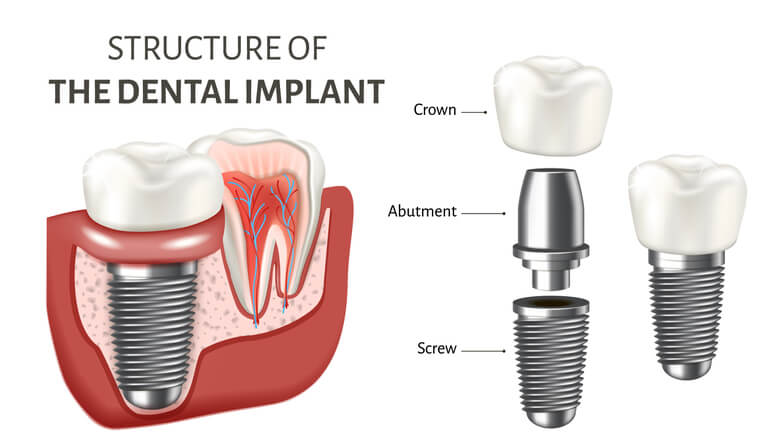
Proper Oral Care for Dental Implants
If you have only 1 or a few dental implants, you probably won’t be tempted to make any changes to your oral hygiene routine. After all, you still have almost a full mouthful of natural teeth remaining, which need to be brushed, flossed and checked up on by a dentist on a regular basis.
But, if you have received a full mouth restoration with dental implants, you might wonder if you need to keep up with your typical oral hygiene routine. After all, your dental implants are fused into your jawbone, right? They can’t fall out or move or even get cavities. What’s the point of brushing and flossing? Unfortunately, too many Manhattan residents think they can get away with not practicing their usual oral hygiene routine, and when they face the consequences, they regret their laissez-faire actions of the past.
You see, there are three reasons why dental implants should be brushed twice daily, flossed daily and checked up on every 6 months by your dentist or periodontist. First, is to prevent implant failure, particularly from an infection called peri-implantitis. Your mouth is full of bacteria, but regular brushing and flossing kill these disease-causing nuisances. Peri-implantitis, an infection that develops around a dental implant, is so serious that it can lead to implant failure, causing your implant to loosen to the point that it falls out or needs to be removed. Second, even though you may no longer have any natural teeth, you still have gums to protect. And finally, it should go without saying that regular brushing and flossing is the number one way to prevent bad breath.
Learning More About Dental Implants
Since dental implants are becoming such a popular solution, there is an increasingly high amount of information about them on the Internet. But, can you trust everything that you read online? What’s the best source for answering all your questions about dental implants and oral surgery, including whether or not you are a candidate for the procedure?
At Manhattan periodontist Dr. Kissel’s office, we believe that Internet research is no substitute for having a direct conversation with Dr. Kissel himself. With years of experience and skill in placing dental implants, he has the knowledge needed to fully explain the dental implant procedure and answer all your questions. The best way for you to receive all the information you need to know about dental implants is to arrange a consultation with periodontist Dr. Kissel. During this consultation, Dr. Kissel will perform the oral examination and tests that determine what type of dental implants you are eligible for, explain the dental implant procedure to you, and answer all your questions. If you’re ready to replace your smile with natural-looking, functional dental implants, then call Dr. Kissel’s office in New York City for a consultation at (212) 702-9088 or book online.
